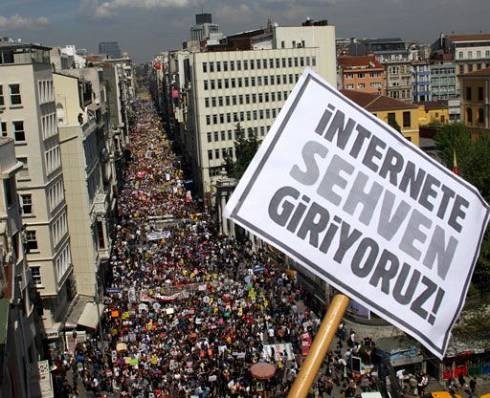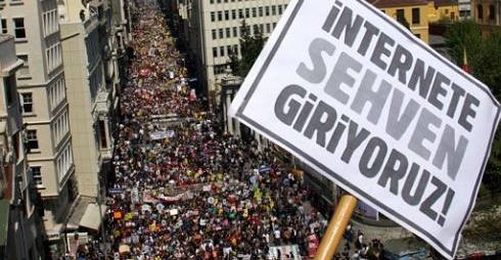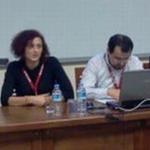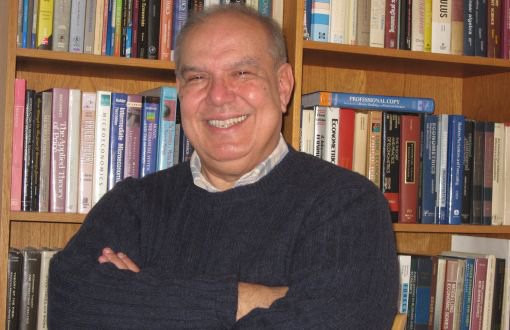
Transport, Maritime Affairs and Communications Minister Binali Yıldırım said social media represents a threat that needs to be contained. Minister Yıldırım then yesterday denied allegations that they were working on measures to censor it, but Dr. Özgür Uçkan from Istanbul's Bilgi University had another story to tell bianet.
"Social media can get large groups of people fired up. This is a threat. Measures need to be taken [against it,]" Minister Yıldırım said.
Following these remarks, the ministry began working on developing new measures to intervene against Facebook and Twitter in situations where "public security" necessitates it, according to a news story by Olcay Aydilek that appeared in the daily Habertürk.
The state believes that both the "Arab Spring" and the ethnic and secterian tensions that culminated in wake of the incessant clashes between government forces and the Kurdistan Workers' Party (PKK) in the southeast were all organized through social media, according to Aydilek's story.
"Social media is plainly bothering the government. The reason is because it has turned into the most potent form of alternative media. If we only take a glance at the news we receive from social media, it becomes blatantly obvious how the government is so disturbed by this lack of control. Şemdinli, Uludere, Süngü, Denizfeneri... People can immediately receive information from social media on every subject they cannot learn about through [conventional] media sources. If you also add the potential for people to organize themselves through social media, then it becomes evident why they fear it so much," Prof. Uçkan told bianet.
"Feeling the waters first"
Prof. Uçkan said he did not believe in Minister Yıldırım's later denial of the allegations in question.
Thus far, the state has been unable to censor social media, as such sites have not collaborated with private companies in full, he said, adding that the state found their limited efforts to censor social media through hashtags and top trends on Twitter insufficient.
"They say they will do anything possible for this not to look like censuring, but this is about feeling the waters first, and they will observe the backlash," Prof. Uçkan said.
"No state has been able to implement the level of censuring they were aiming for, including China and Iran. They either have to entirely shut access to a site, or else they have to leave it be. A full shut down is not an answer, however, as people will definitely find new ways to circumvent such restrictions in the world of internet," Prof. Uçkan said.
"I do not know what they will exactly do. I do think they know it either. I am certain, however, that they are very busy exploring [these possibilities,]" he added.
"Social media no rose garden"
"British Prime Minister Cameron voiced concerns about [the lack of control over] social media following the outbreak of riots in London, only two months after he called the Arab Spring a marvelous thing," he said, adding that the Turkish government was no less hypocritical either.
"Turkey is the country with the greatest number of imprisoned journalists in the world. Social media was the sole platform that remained elusive for [the government] in an environment where they could control mainstream media through intimidation," Prof. Uçkan added.
Alternative sources such as bianet have a limited reach, but sites such as Facebook and Twitter are used by massive numbers of people, and thus we can understand the government's irritation, according to Prof. Uçkan.
"They want to censor everything that bothers them, but this is no rose garden. People will hit the streets when they do such a thing, and the government will encounter a severe backlash," he said. (EKN)










.jpg)


